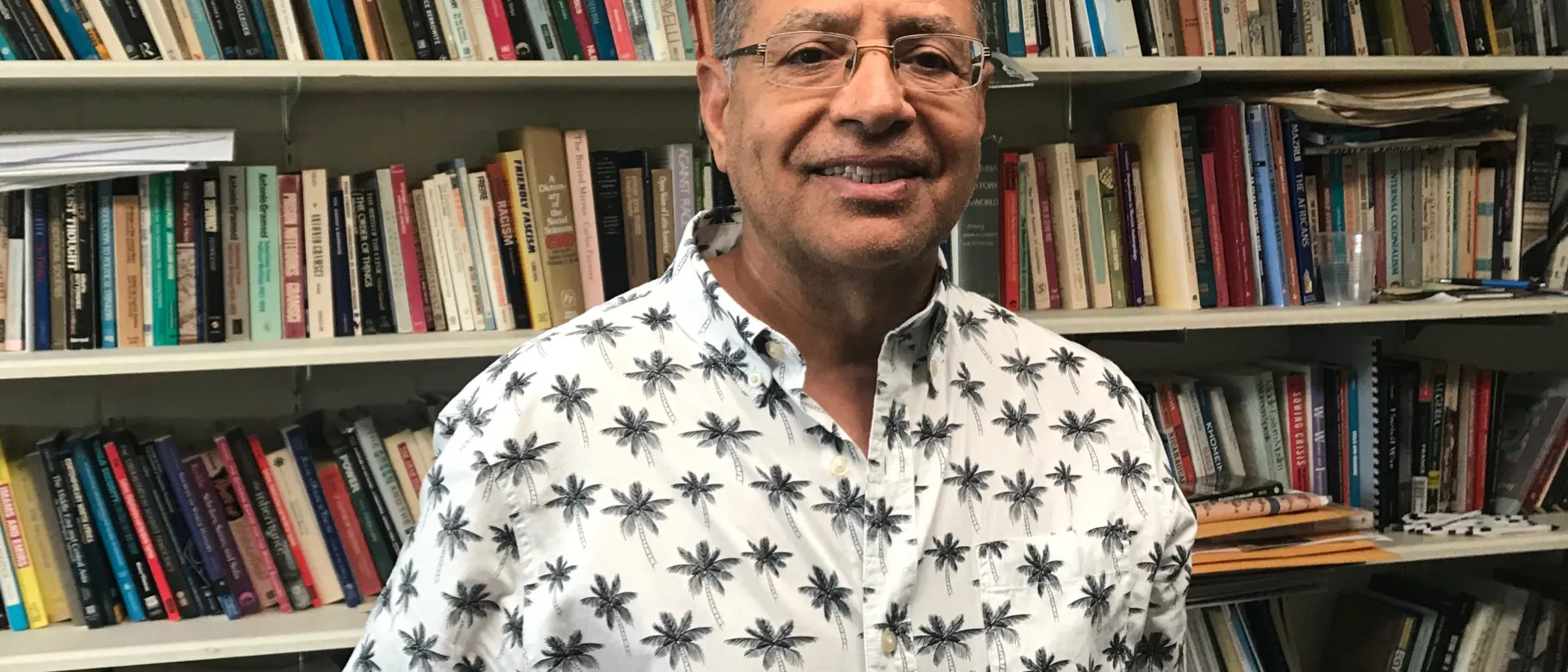Ali Ahmida travels to Tunisia to discuss his Libya report with United Nation’s committee

Ali Ahmida, Ph.D., founding chair and professor in the Department of Political Science, recently traveled to Tunisia to discuss a report he was commissioned by the United Nations (U.N.) to write on the civil war in Libya and the impact it has had on society.
“The crisis there has been lingering for a long time, and all the transition scenarios and models have failed,” Ahmida explained. “We’re working on really concrete, very constructive, in depth ways of thinking about the crisis. I want to help the country where I was born.”
Ahmida was born in Waddan, Libya, and still has friends and relatives there.
His work for the U.N. is part of The Libya Socioeconomic Dialogue Project, which provides a platform for Libyans to formulate, discuss, evaluate and advocate for a socioeconomic future vision to achieve stabilization and development in their country.
Three baseline studies are being conducted on the state of the Libyan economy, society and public governance.
The studies are broad and comprehensive, providing insight into the workings of the Libyan economy, society and governance system. The goal is to identify key challenges and opportunities.
At the U.N. meeting in Tunisia, Ahmida discussed Libyan society and identified five priorities for transition.
The meeting was designed to update participants on the progress made on the project so far, challenges encountered and upcoming planned activities.
This is not the first time the U.N. has called on Ahmida for his expertise.
“A small university like ours is being sought out by the U.N.,” exclaimed Ahmida. “This is my fifth time. I see it as an opportunity to make a difference and do it well.”
Ahmida was also interviewed recently by San Francisco radio station KPFA about the civil war in Libya.